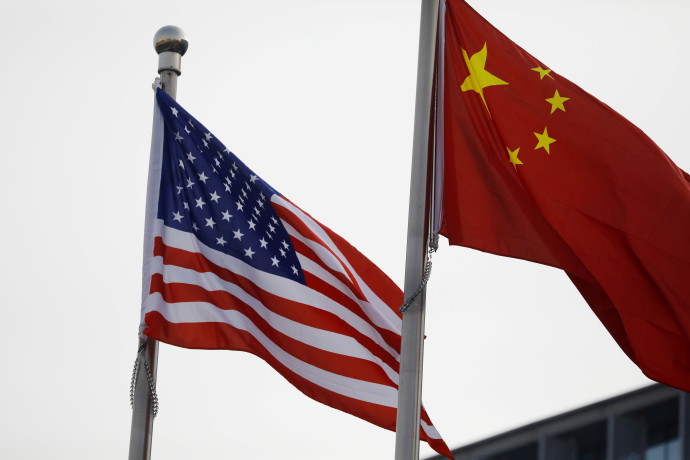
The Conflict over the Nature of US-China Authority: Consequences Are Likely To Affect Us
From a human point of view, it is natural and understandable that the unchecked spread of the omicron variant and the confused response of the government are at the forefront of the news these days. It presents a clear and immediate danger to all of us, and it is no wonder that the public and the media are searching for a guiding hand. But at the same time, there are other matters occurring in our immediate and not so immediate surroundings that should worry us.
The first issue is Iran. Despite putting up a seemingly deliberate smoke screen with respect to Israel, the United States continues, with the help of the European Union, to gallop ahead with renewing the Iran nuclear agreement that potentially includes some benefits for Tehran, both in comprehensive talks in Vienna and through other channels. This provides Israel with no clear policy other than bombastic, irrelevant pronouncements.
The second issue is that almost without our having noticed, a Cold War atmosphere is growing in the world. On one side, you have America and its allies (the Europeans are demonstrating their usual weakness) and on the other, you have China and Russia. At the moment, international attention is focused on the conflict between Russia and Ukraine, but despite Russia’s activity here, it is supposedly just a local, limited conflict whose possible consequences are testing relations between the superpowers and the level of determination on both sides. The other players will have to draw their own conclusions.
The conflict is not ideological in the sense that it was in the past when communism faced off with democracy. But the conflict does touch on the way each side defines the essence of its authority. China sets an anti-democratic tone and Russia, along with several other countries in Europe, Asia and Latin America, are following suit. This approach rejects democratic, liberal principles, the values of the free market, the rule of law, the rights of the individual, etc. — values that were the common denominator and the declared goal for most of the world 75 years after World War II.
In addition, China aims to lead the new order with world leaders at the center — of course, not in the sense of the German philosopher Johann Gottfried Herder, who saw in the state a framework that would guarantee freedom for the individual. Instead, China's order would force its authority on all areas of life, most of the cultural and social institutions, the law, technology, etc. — meaning they would all serve the central authority.
When the leaders of China and Russia look at what is happening in Washington and at the social, political and cultural fractures in America in addition to the withdrawal from Afghanistan, they have probably concluded that the days of America as a leading power in the world have come to an end and that the future belongs to them under the banner, “The East Is Rising, the West Is Falling.” Even if this assumption is wrong and hasty — and even Adolf Hitler made this mistake — it is likely to result in a situation that endangers world peace.
Regarding the situation in Ukraine along with several others, Presidents Joe Biden and Vladimir Putin have spoken several times by phone, conversations that seem to have been held between deaf people. Yet afterward, talks opened up in Europe between Russian and American diplomatic delegations to discuss the Ukrainian crisis, among other issues. As noted, though, the world’s top priority should not be Russia or Ukraine, but China and its geopolitical and hegemonic plans, including the possibility for asserting violent control over Taiwan, a country the United States has promised to protect.
With respect to Russia, one of the results of the American withdrawal from the Middle East, which began during the Obama era and gathered steam in the days of Donald Trump and Biden, has been evident in our region. The last Israeli government exploited the new geopolitical situation with meaningful success in promoting Israeli security interests in Syria and elsewhere — Russia is not an ally like America is, but a pragmatic partner — and at this stage, at least, the current government has not undermined this achievement.
But the situation is likely to deteriorate if the Middle East turns into an object of the Cold War as it was in the days of the Soviet Union. That situation already exists with China, as demonstrated by Israel’s obligation to report to Washington ahead of time about certain economic agreements with China. Either way, the dark clouds that signal the possibility of a new Cold War between global powers do not bode well for the secondary players, including Israel.
